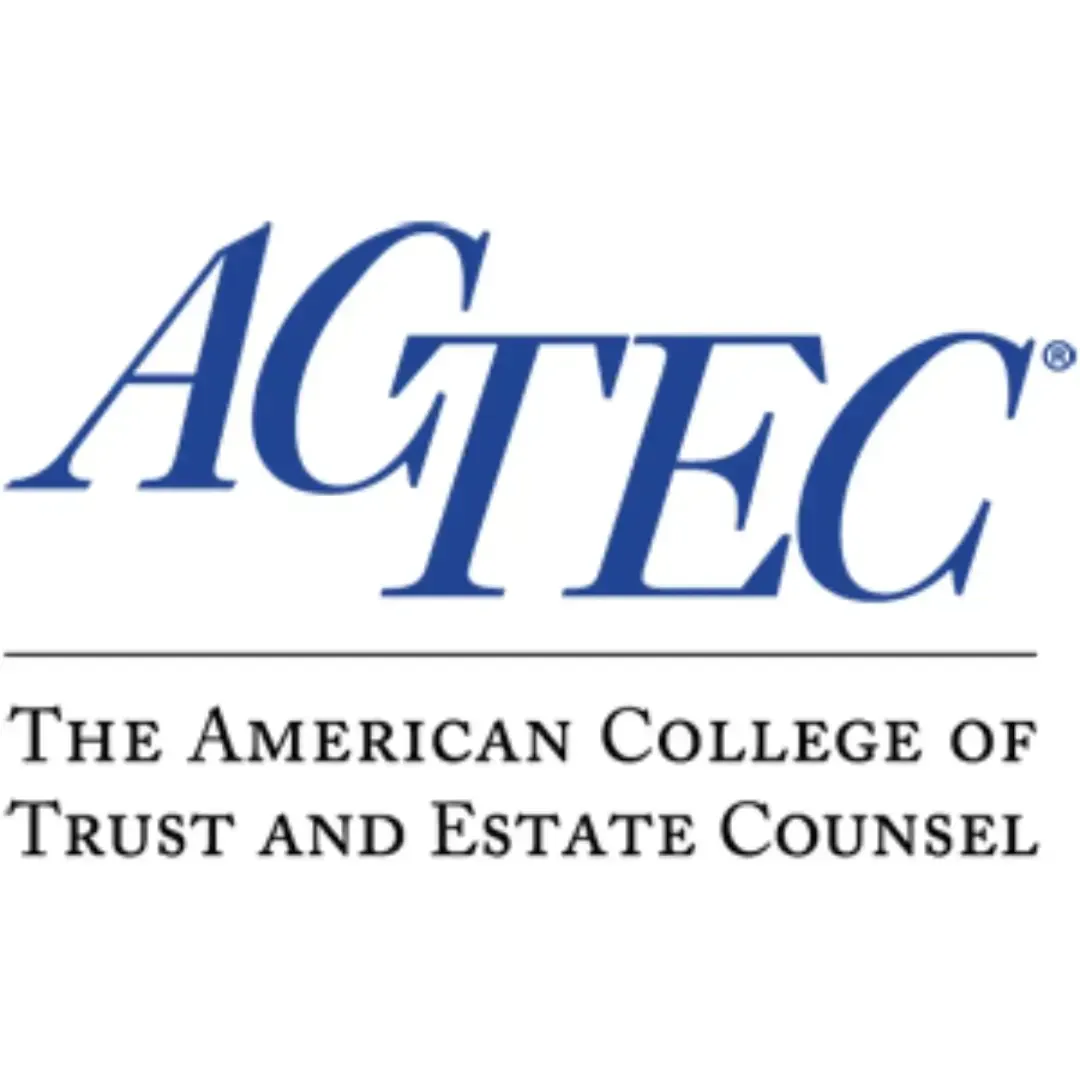Blogs

Navigate West Virginia Residential Real Estate Law with Ease
West Virginia Residential Real Estate Law: Comprehensive Guide to Tenant Rights, Lease Agreements, and Legal Processes
West Virginia's residential real estate law encompasses a complex framework of statutes, regulations, and legal precedents that govern the relationships between landlords and tenants, the processes of property ownership and foreclosure, and the various legal protections afforded to both property owners and renters throughout the Mountain State. Understanding these laws is essential for anyone involved in residential real estate transactions, whether as a property owner, tenant, real estate professional, or legal practitioner.
The state's approach to residential real estate law reflects both its historical development and contemporary needs, balancing the rights of property owners with the protections necessary for tenants and homeowners. From the bustling urban areas of Charleston and Huntington to the rural communities scattered throughout the Appalachian region, West Virginia's residential real estate laws apply uniformly while accounting for the diverse housing markets and economic conditions found across the state.
This comprehensive guide examines the critical aspects of West Virginia residential real estate law, providing detailed insights into tenant rights, landlord obligations, lease agreement requirements, eviction procedures, foreclosure processes, and the various legal resources available to residents. Whether you are a first-time renter seeking to understand your rights, a property owner navigating landlord responsibilities, or a homeowner facing financial difficulties, this guide serves as an essential resource for understanding and navigating West Virginia's residential real estate legal landscape.
The importance of understanding these laws cannot be overstated, as violations or misunderstandings can result in significant financial consequences, legal disputes, and disruptions to housing stability. By providing clear explanations of legal requirements, procedures, and protections, this guide aims to empower residents with the knowledge necessary to make informed decisions and protect their interests in residential real estate matters.
What Are Tenant Rights in West Virginia?
Tenant rights in West Virginia are established through a combination of state statutes, common law principles, and local ordinances that work together to create a comprehensive framework of protections for residential renters. These rights are designed to ensure that tenants have access to safe, habitable housing while providing legal recourse when landlords fail to meet their obligations or attempt to violate tenant protections.
The foundation of tenant rights in West Virginia rests on the principle that all residential tenants are entitled to certain fundamental protections regardless of the type of rental property, the amount of rent paid, or the specific terms of their lease agreement. These rights are considered non-waivable, meaning that landlords cannot require tenants to give up these protections as a condition of renting, and any lease provisions that attempt to waive these rights are generally considered void and unenforceable.
Which Rights Protect Tenants Under West Virginia Law?
West Virginia law provides tenants with several essential rights that serve as the cornerstone of residential rental protections. The right to habitable housing stands as perhaps the most fundamental protection, requiring landlords to maintain rental properties in conditions that meet basic health and safety standards. This right encompasses not only the physical structure of the property but also essential services such as heating, plumbing, electrical systems, and other utilities necessary for safe and comfortable living.
The right to privacy represents another crucial protection for West Virginia tenants. Landlords must provide reasonable notice before entering rental properties, typically 24 hours except in emergency situations, and must have legitimate reasons for entry such as necessary repairs, inspections, or showing the property to prospective tenants or buyers. This right extends to protection from harassment and ensures that tenants can enjoy peaceful use of their rental homes without unreasonable interference from landlords.
Tenants in West Virginia also possess the right to be free from discriminatory practices in housing. Federal fair housing laws apply throughout the state, prohibiting discrimination based on race, color, religion, sex, national origin, familial status, and disability. These protections extend to all aspects of the rental relationship, from initial advertising and application processes through lease termination and security deposit return.
The right to proper notice before eviction proceedings represents a critical protection that ensures tenants have adequate time to address lease violations or seek alternative housing arrangements. West Virginia law requires landlords to follow specific notice procedures before initiating eviction actions, with different notice periods depending on the reason for eviction and the type of tenancy involved.
Financial protections constitute another important category of tenant rights in West Virginia. These include the right to have security deposits handled according to specific legal requirements, protection from excessive or unreasonable fees, and the right to receive proper accounting of any deductions made from security deposits upon lease termination.
How Are Security Deposits Regulated in West Virginia?
Security deposit regulations in West Virginia provide important financial protections for tenants while establishing clear guidelines for landlords regarding the collection, handling, and return of these funds. Understanding these regulations is essential for both tenants and landlords to ensure compliance with state law and avoid disputes over deposit handling.
West Virginia law does not impose a maximum limit on the amount landlords may charge for security deposits, allowing market forces and individual lease negotiations to determine appropriate amounts. However, the law does establish strict requirements for how these deposits must be handled once collected, creating important protections for tenants' financial interests.
Landlords in West Virginia are required to return security deposits within a reasonable time after lease termination, typically within 60 days, unless they have legitimate reasons for retaining all or part of the deposit. When landlords retain any portion of a security deposit, they must provide tenants with a written itemization of deductions, including specific descriptions of damages or unpaid charges and the costs associated with addressing these issues.
The law distinguishes between normal wear and tear, which landlords cannot charge tenants for, and actual damage beyond normal use, for which tenants may be held responsible. Normal wear and tear includes minor scuffs on walls, worn carpet in high-traffic areas, and other deterioration that occurs through ordinary use of the property over time. Actual damage includes holes in walls, stains on carpets, broken fixtures, and other issues that result from tenant negligence or misuse.
Landlords who fail to comply with security deposit regulations may face legal consequences, including liability for damages and attorney fees in cases where tenants must pursue legal action to recover improperly withheld deposits. This creates strong incentives for landlords to follow proper procedures and provides tenants with meaningful recourse when deposits are wrongfully retained.
The security deposit regulations also address situations where rental properties are sold during the tenancy period. In such cases, the selling landlord must either return the deposit to the tenant or transfer it to the new owner, who then becomes responsible for its proper handling and eventual return according to legal requirements.
What Are the Legal Grounds for Breaking a Lease in West Virginia?
West Virginia law recognizes several circumstances under which tenants may legally terminate lease agreements before their scheduled expiration dates without facing penalties or continued rent obligations. Understanding these legal grounds is crucial for tenants who find themselves in situations where continuing the tenancy would be impossible, unsafe, or legally problematic.
Military deployment represents one of the most clearly established grounds for early lease termination under both federal and state law. The Servicemembers Civil Relief Act provides federal protections for military personnel who receive deployment orders or permanent change of station orders, allowing them to terminate residential leases with proper notice and documentation. West Virginia law generally follows these federal protections and may provide additional safeguards for military families.
Uninhabitable conditions that pose serious health or safety risks provide another legitimate ground for lease termination. When landlords fail to address significant habitability issues after receiving proper notice from tenants, the law may allow tenants to terminate their leases and vacate the premises without penalty. These conditions must be substantial and directly related to health or safety concerns, such as lack of heat in winter, serious plumbing problems, electrical hazards, or structural issues that make the property unsafe for occupancy.
Landlord harassment or violation of tenant privacy rights may also justify early lease termination in certain circumstances. When landlords engage in systematic harassment, make unreasonable demands for entry, or otherwise violate tenants' rights to peaceful enjoyment of their rental homes, tenants may have grounds to terminate their leases and seek damages for the landlord's misconduct.
Domestic violence situations receive special consideration under West Virginia law, with provisions that allow victims to terminate leases early when necessary for their safety and protection. These provisions recognize that victims of domestic violence may need to relocate quickly to escape dangerous situations and should not be penalized financially for taking necessary steps to protect themselves and their families.
The process for legally breaking a lease typically requires tenants to provide written notice to landlords, document the circumstances justifying early termination, and follow any specific procedures outlined in state law or local ordinances. Tenants who terminate leases without proper legal justification may remain liable for rent payments through the original lease term, making it essential to understand and follow proper procedures when early termination becomes necessary.
How Does West Virginia Law Address Landlord Repair Obligations?
West Virginia law places significant responsibilities on landlords to maintain rental properties in habitable condition and address repair needs in a timely and appropriate manner. These obligations are fundamental to the landlord-tenant relationship and serve to protect tenants' health, safety, and quality of life while preserving property values and ensuring compliance with housing standards.
The implied warranty of habitability represents the cornerstone of landlord repair obligations in West Virginia. This legal doctrine requires landlords to maintain rental properties in conditions suitable for human habitation, regardless of specific lease provisions. The warranty covers essential systems and structural elements including heating, plumbing, electrical systems, roofing, and other components necessary for safe and comfortable living.
Landlords must address repair requests within reasonable timeframes, with emergency situations requiring immediate attention and non-emergency repairs typically needing completion within a reasonable period, often considered to be 30 days or less depending on the nature and severity of the issue. Emergency situations include problems that pose immediate threats to health or safety, such as gas leaks, electrical hazards, lack of heat in winter, or plumbing failures that render the property uninhabitable.
The law establishes procedures for tenants to request repairs and for landlords to respond to these requests. Tenants should provide written notice of repair needs, documenting the specific problems and requesting timely resolution. This written notice serves as important evidence of the landlord's knowledge of the issue and starts the clock for reasonable response times.
When landlords fail to address repair obligations within reasonable timeframes, tenants may have several legal remedies available. These may include the right to withhold rent until repairs are completed, the ability to make necessary repairs themselves and deduct costs from rent payments, or the option to terminate the lease due to uninhabitable conditions. However, tenants must follow specific legal procedures when pursuing these remedies to avoid potential legal consequences.
The repair obligations extend beyond basic habitability requirements to include compliance with local housing codes and building standards. Landlords must ensure that rental properties meet all applicable safety and health requirements, obtain necessary permits for renovations or improvements, and address code violations promptly when they arise.
Landlords who consistently fail to meet repair obligations may face legal action from tenants, including lawsuits for damages, rent reductions, or lease termination. Additionally, local housing authorities may take enforcement action against landlords who violate housing codes, potentially resulting in fines, required improvements, or restrictions on rental activities.
How Does the Eviction Process Work in West Virginia?
The eviction process in West Virginia follows a structured legal procedure designed to balance landlords' rights to regain possession of their properties with tenants' rights to due process and adequate notice before losing their homes. Understanding this process is essential for both landlords and tenants, as improper procedures can result in dismissed cases, financial penalties, and extended legal disputes.
West Virginia's eviction laws are primarily governed by state statutes that establish uniform procedures throughout the state, though local courts may have specific rules regarding filing procedures, scheduling, and case management. The process is designed to be relatively swift while ensuring that all parties receive fair treatment and adequate opportunity to present their cases.
What Are the Legal Steps for Eviction in West Virginia?
The eviction process in West Virginia begins with proper notice to the tenant, which varies depending on the reason for eviction and the type of tenancy involved. For month-to-month tenancies, landlords must typically provide 30 days' written notice to terminate the tenancy without cause. For lease violations such as non-payment of rent, landlords must provide shorter notice periods, often ranging from 3 to 10 days depending on the specific violation and lease terms.
The notice must be properly served on the tenant according to legal requirements, which may include personal service, posting on the property, or other methods specified by law. Improper notice service can result in dismissal of the eviction case and require the landlord to start the process over with proper notice.
If the tenant does not remedy the violation or vacate the property within the notice period, the landlord may file an unlawful detainer action in the appropriate magistrate court. This filing initiates the formal legal proceedings and requires payment of court fees and proper completion of legal documents. The court will then schedule a hearing, typically within 10 to 20 days of filing, and serve notice of the hearing on the tenant.
At the eviction hearing, both landlord and tenant have the opportunity to present evidence and arguments regarding the case. Landlords must prove that proper notice was given, that the tenant violated lease terms or held over beyond the lease period, and that they are entitled to possession of the property. Tenants may present defenses such as improper notice, landlord violations of habitability requirements, or other legal defenses that may defeat the eviction action.
If the court rules in favor of the landlord, it will issue a judgment for possession and may also award monetary damages for unpaid rent, court costs, and attorney fees if provided for in the lease agreement. The court will typically give the tenant a brief period, often 10 days, to vacate the property voluntarily before authorizing the sheriff to physically remove the tenant and their belongings.
How Can Tenants Defend Against Eviction in West Virginia?
Tenants facing eviction in West Virginia have several potential defenses available, depending on the specific circumstances of their case and the landlord's compliance with legal requirements. Understanding these defenses is crucial for tenants who believe their eviction is improper or who have legitimate reasons for challenging the landlord's actions.
Improper notice represents one of the most common and effective defenses against eviction. If the landlord failed to provide proper notice according to legal requirements, including the correct notice period, proper service methods, or accurate information about the violation, the eviction case may be dismissed. Tenants should carefully review all notices received and document any deficiencies in the notice process.
Landlord violations of habitability requirements can provide strong defenses against eviction, particularly in cases where tenants have withheld rent due to uninhabitable conditions. If landlords have failed to address serious repair issues that affect health or safety, tenants may be able to defend against eviction by demonstrating that their rent withholding was justified under the law.
Retaliatory eviction defenses apply when landlords attempt to evict tenants in response to legitimate complaints about housing conditions, requests for repairs, or other protected tenant activities. West Virginia law prohibits landlords from retaliating against tenants who exercise their legal rights, and tenants who can demonstrate retaliatory motives may be able to defeat eviction actions.
Discrimination defenses may apply when evictions are based on protected characteristics such as race, religion, family status, or disability. Federal and state fair housing laws prohibit discriminatory evictions, and tenants who believe they are being evicted for discriminatory reasons should document evidence of the discrimination and seek legal assistance.
Procedural defenses focus on the landlord's compliance with legal procedures throughout the eviction process. This includes proper court filings, service of process, and adherence to court rules and deadlines. Technical deficiencies in the landlord's case may result in dismissal or delay of the eviction proceedings.
What Constitutes Unlawful Detainer in West Virginia?
Unlawful detainer in West Virginia refers to the legal action landlords use to regain possession of rental properties when tenants remain on the premises without legal right to do so. Understanding the elements of unlawful detainer is important for both landlords seeking to recover their properties and tenants who may be facing such actions.
The basic elements of unlawful detainer include the existence of a landlord-tenant relationship, termination of that relationship through proper notice or lease expiration, and the tenant's continued possession of the property after the right to possession has ended. Landlords must prove each of these elements to succeed in an unlawful detainer action.
Holdover tenancy represents the most common form of unlawful detainer, occurring when tenants remain on the property after their lease has expired or been properly terminated. This can happen when month-to-month tenants receive proper notice to quit but fail to vacate, or when fixed-term lease tenants remain beyond the lease expiration date without the landlord's consent.
Breach of lease conditions can also give rise to unlawful detainer actions when tenants violate material lease terms and fail to cure the violation within the notice period provided by the landlord. Common lease violations include non-payment of rent, unauthorized pets, excessive noise, property damage, or use of the property for illegal purposes.
Non-payment of rent represents a specific type of lease violation that often leads to unlawful detainer actions. West Virginia law typically requires landlords to provide tenants with notice and an opportunity to pay overdue rent before proceeding with eviction, though the specific notice periods and procedures may vary depending on lease terms and local ordinances.
The unlawful detainer process provides a relatively quick legal remedy for landlords to regain possession of their properties, but it requires strict compliance with legal procedures and notice requirements. Landlords who fail to follow proper procedures may find their cases dismissed and may be required to start the process over with proper notice and documentation.
How Is Landlord Retaliation Defined and Prevented in West Virginia?
Landlord retaliation in West Virginia refers to adverse actions taken by landlords against tenants in response to tenants' exercise of their legal rights or legitimate complaints about housing conditions. Understanding retaliation laws is crucial for protecting tenants' rights and ensuring that landlords cannot use their position to intimidate or punish tenants who assert their legal protections.
West Virginia law recognizes that tenants must be free to exercise their rights without fear of retaliation from landlords. This includes the right to complain about housing conditions, request necessary repairs, report code violations to authorities, organize with other tenants, or pursue legal remedies when landlords fail to meet their obligations.
Protected tenant activities that cannot be the basis for retaliation include filing complaints with housing authorities or health departments, requesting repairs for habitability issues, withholding rent when legally justified, organizing tenant associations, or filing lawsuits against landlords for violations of tenant rights. Tenants who engage in these protected activities cannot be evicted, have their rent increased, or face other adverse actions in retaliation.
Prohibited retaliatory actions include eviction proceedings, rent increases, reduction of services, harassment, threats, or other actions designed to punish tenants for exercising their rights. The law recognizes that landlords have significant power over tenants' housing situations and prohibits the abuse of this power to discourage legitimate tenant complaints or legal actions.
Timing considerations are important in retaliation cases, as actions taken by landlords shortly after tenants engage in protected activities may be presumed to be retaliatory. West Virginia law may establish specific time periods during which landlord actions are presumed retaliatory, requiring landlords to prove legitimate, non-retaliatory reasons for their actions.
Tenant remedies for retaliation may include damages for financial losses, injunctive relief to prevent continued retaliation, attorney fees and court costs, and in some cases, punitive damages designed to deter future retaliatory conduct. Tenants who believe they are facing retaliation should document the protected activity and the landlord's response, and seek legal assistance to protect their rights.
Prevention of retaliation requires both legal protections and practical enforcement mechanisms. Tenants should document their complaints and requests in writing, keep records of landlord responses, and be aware of their rights under state and local law. When retaliation occurs, prompt legal action may be necessary to protect tenants' rights and prevent escalation of the situation.
What Should You Know About Residential Lease Agreements in West Virginia?
Residential lease agreements in West Virginia serve as the foundation of the landlord-tenant relationship, establishing the rights, responsibilities, and expectations of both parties throughout the tenancy period. Understanding the legal requirements and common provisions of lease agreements is essential for both landlords and tenants to ensure compliance with state law and avoid disputes during the tenancy.
West Virginia law does not require residential lease agreements to be in writing for tenancies of one year or less, but written leases provide important protections and clarity for both parties. Oral lease agreements can be difficult to enforce and may lead to disputes over terms and conditions, making written agreements strongly advisable for all residential tenancies.
What Key Clauses Must Be Included in West Virginia Lease Agreements?
While West Virginia law does not mandate specific clauses in residential lease agreements, certain provisions are essential for protecting both landlords' and tenants' interests and ensuring compliance with state law. Understanding these key clauses helps both parties create comprehensive agreements that address important aspects of the landlord-tenant relationship.
Rent amount and payment terms represent fundamental provisions that must be clearly specified in lease agreements. This includes the monthly rent amount, due date, acceptable payment methods, late fees if applicable, and any penalties for returned checks or other payment issues. Clear payment terms help prevent disputes and ensure that both parties understand their financial obligations.
Security deposit provisions should specify the amount of any security deposit required, the conditions under which deductions may be made, and the procedures for returning deposits at the end of the tenancy. These provisions should comply with West Virginia law regarding security deposit handling and provide clear guidelines for both parties regarding deposit obligations.
Property description and permitted uses should clearly identify the rental property and specify how the property may be used. This includes restrictions on commercial use, subletting, pet policies, and other limitations on tenant activities. Clear use restrictions help prevent violations and ensure that tenants understand what activities are permitted on the property.
Maintenance and repair responsibilities should be clearly allocated between landlords and tenants, specifying which party is responsible for different types of maintenance and repairs. While landlords cannot avoid their legal obligations for habitability and major repairs, lease agreements can allocate responsibility for minor maintenance tasks and tenant-caused damage.
Lease term and renewal provisions establish the duration of the tenancy and procedures for renewal or termination. This includes start and end dates for fixed-term leases, notice requirements for month-to-month tenancies, and any automatic renewal clauses that may apply.
Entry and inspection provisions should comply with West Virginia law regarding landlord entry rights while providing clear procedures for routine inspections, emergency entry, and showing the property to prospective tenants or buyers. These provisions help protect tenant privacy rights while allowing landlords necessary access to their properties.
How Are Lease Addendums Used and Enforced in West Virginia?
Lease addendums in West Virginia provide mechanisms for modifying or supplementing the terms of residential lease agreements to address specific circumstances, changing conditions, or additional requirements that may arise during the tenancy. Understanding how addendums work and their legal enforceability is important for both landlords and tenants who need to modify their lease arrangements.
Addendums must be properly executed with the agreement of both parties to be legally enforceable. This typically requires written documentation signed by both landlord and tenant, clearly identifying the lease being modified and specifying the exact changes or additions being made. Oral modifications may be difficult to enforce and should generally be avoided.
Common types of lease addendums include pet addendums that allow tenants to keep pets subject to specific conditions and additional fees, parking addendums that allocate parking spaces or establish parking rules, and utility addendums that modify responsibility for utility payments or establish procedures for utility management.
Rent modification addendums may be used to change rent amounts during the lease term, though such modifications must comply with any rent control ordinances and lease provisions regarding rent changes. These addendums should specify the new rent amount, effective date, and any conditions associated with the rent change.
Occupancy addendums may be necessary when additional occupants are added to the lease or when occupancy arrangements change during the tenancy. These addendums should identify new occupants, specify their rights and responsibilities, and address any additional security deposit or rent adjustments that may apply.
Maintenance addendums can modify the allocation of maintenance responsibilities between landlords and tenants, though they cannot relieve landlords of their legal obligations for habitability and major repairs. These addendums should clearly specify which party becomes responsible for specific maintenance tasks and any compensation or rent adjustments associated with the change.
Legal enforceability of lease addendums depends on their compliance with state law, proper execution by both parties, and consistency with the original lease terms. Addendums that violate tenant rights, contradict state law, or are executed under duress may not be enforceable in court.
What Are the Legal Limits on Rent Increases in West Virginia?
West Virginia does not have statewide rent control laws, giving landlords generally broad discretion to set rent amounts and implement rent increases, subject to lease terms and local ordinances. However, understanding the legal framework governing rent increases is important for both landlords and tenants to ensure compliance with applicable laws and avoid disputes.
For fixed-term leases, landlords generally cannot increase rent during the lease term unless the lease specifically provides for such increases or both parties agree to a lease modification. Rent increases during fixed-term leases must comply with any procedures specified in the lease agreement and may require written notice and tenant consent.
Month-to-month tenancies allow landlords more flexibility to implement rent increases, but proper notice must be provided according to state law and lease terms. The required notice period for rent increases in month-to-month tenancies is typically 30 days, though lease agreements may specify longer notice periods.
Local rent control ordinances may impose additional restrictions on rent increases in certain municipalities or housing types. Tenants and landlords should check with local housing authorities to determine whether any local rent control laws apply to their specific situation.
Discriminatory rent increases based on protected characteristics such as race, religion, family status, or disability are prohibited under federal and state fair housing laws. Rent increases that appear to target tenants based on protected characteristics may violate anti-discrimination laws and subject landlords to legal liability.
Retaliatory rent increases implemented in response to tenant complaints, repair requests, or other protected activities may be prohibited under West Virginia's anti-retaliation laws. Tenants who believe rent increases are retaliatory should document the timing and circumstances of the increase and seek legal advice about their rights.
Reasonable rent increases that reflect market conditions, increased operating costs, or property improvements are generally permissible under West Virginia law, provided proper notice is given and the increases do not violate lease terms or anti-discrimination laws.
How Can Lease Termination Be Legally Handled in West Virginia?
Lease termination in West Virginia must follow specific legal procedures that vary depending on the type of tenancy, reason for termination, and terms of the lease agreement. Understanding these procedures is essential for both landlords and tenants to ensure that lease terminations are handled properly and legally.
Fixed-term lease termination typically occurs automatically at the end of the lease period, though both parties should provide notice of their intentions regarding renewal or termination. If tenants remain on the property after lease expiration without landlord consent, they may become holdover tenants subject to eviction proceedings.
Month-to-month tenancy termination requires proper notice from either party, typically 30 days' written notice before the intended termination date. The notice must comply with state law requirements regarding content, service, and timing to be legally effective.
Early lease termination by tenants may be possible under certain circumstances, including military deployment, uninhabitable conditions, domestic violence situations, or other grounds recognized by state law. Tenants seeking early termination should follow proper procedures and document the circumstances justifying early termination.
Landlord-initiated termination for cause requires proper notice and compliance with eviction procedures when tenants violate lease terms or engage in prohibited activities. The notice period and procedures vary depending on the type of violation and may range from immediate termination for serious violations to longer notice periods for curable violations.
Mutual agreement termination allows both parties to agree to end the lease early, typically through written agreement that specifies the termination date, any financial settlements, and procedures for security deposit return and property inspection.
Legal consequences of improper termination may include continued rent liability, damages for breach of lease, or dismissal of eviction proceedings. Both landlords and tenants should ensure they follow proper legal procedures when terminating lease agreements to avoid potential legal and financial consequences.
What Is the West Virginia Foreclosure Process for Homeowners?
The foreclosure process in West Virginia provides legal mechanisms for mortgage lenders to recover their investments when homeowners default on their mortgage obligations, while also providing important protections and opportunities for homeowners to avoid foreclosure or minimize its impact. Understanding this process is crucial for homeowners facing financial difficulties and for anyone involved in residential real estate transactions.
West Virginia recognizes both judicial and non-judicial foreclosure procedures, with the specific process depending on the terms of the mortgage agreement and the lender's preferences. Most foreclosures in West Virginia follow the non-judicial process, which is generally faster and less expensive for lenders while still providing important protections for homeowners.
What Are the Steps in the West Virginia Foreclosure Timeline?
The West Virginia foreclosure timeline begins when homeowners fall behind on their mortgage payments and lenders initiate collection efforts. The specific timeline and procedures vary depending on the type of foreclosure process used and the terms of the mortgage agreement, but certain key steps are common to most foreclosure proceedings.
Default notice typically occurs after homeowners miss several mortgage payments, usually three to six months depending on the lender's policies and mortgage terms. This notice informs homeowners that they are in default and may face foreclosure proceedings if the default is not cured within a specified time period.
Acceleration of the loan may occur when lenders declare the entire mortgage balance due and payable immediately due to the homeowner's default. This acceleration triggers the foreclosure process and establishes the amount that must be paid to cure the default and avoid foreclosure.
Notice of foreclosure sale must be provided to homeowners and published in local newspapers according to state law requirements. This notice specifies the date, time, and location of the foreclosure sale and provides homeowners with final opportunity to cure the default before the sale occurs.
Foreclosure sale typically occurs as a public auction where the property is sold to the highest bidder, often the mortgage lender. The sale must comply with state law requirements regarding notice, procedures, and conduct to be legally valid.
Confirmation of sale may be required in judicial foreclosures, where the court reviews the sale procedures and confirms that the sale was conducted properly and for a fair price. This provides additional protection for homeowners and ensures that foreclosure sales meet legal standards.
Redemption period may be available in some cases, allowing homeowners to reclaim their property by paying the full amount owed plus costs and fees within a specified time period after the foreclosure sale. The availability and duration of redemption periods depend on state law and mortgage terms.
How Can Homeowners Defend Against Foreclosure in West Virginia?
Homeowners facing foreclosure in West Virginia have several potential defenses and strategies available to challenge the foreclosure process or negotiate alternatives that may allow them to keep their homes or minimize the financial impact of foreclosure. Understanding these options is crucial for homeowners who want to protect their interests and explore all available alternatives.
Procedural defenses focus on the lender's compliance with legal requirements throughout the foreclosure process. This includes proper notice procedures, compliance with mortgage terms, and adherence to state law requirements for foreclosure sales. Homeowners should carefully review all foreclosure documents and procedures to identify potential deficiencies.
Loan modification negotiations may provide alternatives to foreclosure that allow homeowners to keep their properties while addressing their financial difficulties. These modifications may include reduced interest rates, extended payment terms, principal reductions, or other changes that make mortgage payments more affordable.
Bankruptcy protection can provide temporary or permanent relief from foreclosure proceedings while homeowners reorganize their finances or negotiate with lenders. Chapter 13 bankruptcy may allow homeowners to catch up on missed payments over time while keeping their properties.
Predatory lending defenses may apply when mortgages were obtained through deceptive or illegal lending practices. Homeowners who believe they were victims of predatory lending should document the circumstances of their loan origination and seek legal assistance to evaluate potential defenses.
Servicer error defenses may be available when mortgage servicers make mistakes in payment processing, escrow management, or other aspects of loan administration that contribute to the default. Homeowners should maintain detailed records of all payments and communications with their mortgage servicers.
Workout agreements with lenders may provide alternatives to foreclosure that address both the homeowner's financial difficulties and the lender's need to recover their investment. These agreements may include forbearance, repayment plans, or other arrangements that avoid the costs and delays of foreclosure proceedings.
What Alternatives Exist to Avoid Foreclosure in West Virginia?
West Virginia homeowners facing foreclosure have several alternatives available that may allow them to avoid the foreclosure process while addressing their financial difficulties and protecting their credit ratings. Exploring these alternatives early in the process provides the best opportunities for successful resolution and may prevent the long-term consequences of foreclosure.
Loan workout options include various modifications and arrangements that lenders may offer to help homeowners avoid foreclosure while protecting the lender's investment. These options may include temporary payment reductions, interest rate modifications, term extensions, or principal forbearance that makes payments more manageable.
Refinancing may be possible for homeowners who have sufficient equity in their properties and can qualify for new financing with better terms. Refinancing can provide lower monthly payments, access to equity for debt consolidation, or other benefits that help homeowners avoid foreclosure.
Short sale arrangements allow homeowners to sell their properties for less than the amount owed on the mortgage, with lender approval and agreement to accept the sale proceeds as full satisfaction of the debt. Short sales can help homeowners avoid foreclosure while minimizing damage to their credit ratings.
Deed in lieu of foreclosure involves homeowners voluntarily transferring ownership of their properties to lenders in exchange for release from mortgage obligations. This option can be faster and less damaging to credit than foreclosure while allowing homeowners to avoid the uncertainty and costs of the foreclosure process.
Government assistance programs may be available to help eligible homeowners avoid foreclosure through loan modifications, refinancing assistance, or other support. These programs may be offered through federal agencies, state programs, or local housing authorities.
Housing counseling services provide free or low-cost assistance to homeowners facing foreclosure, helping them understand their options, negotiate with lenders, and develop strategies for avoiding foreclosure. HUD-approved housing counseling agencies are available throughout West Virginia to provide these services.
How to Find and Work With a Real Estate Attorney in West Virginia?
Finding and working with a qualified real estate attorney in West Virginia is essential for anyone facing complex residential real estate legal issues, whether involving landlord-tenant disputes, foreclosure proceedings, property transactions, or other legal matters. The right attorney can provide crucial guidance, protect your interests, and help achieve favorable outcomes in challenging legal situations.
What Services Does a West Virginia Real Estate Attorney Provide?
West Virginia real estate attorneys provide comprehensive legal services that address the full spectrum of residential real estate legal issues. These services encompass both transactional work that helps clients navigate real estate processes and litigation services that protect clients' interests when disputes arise.
Landlord-tenant law representation includes assistance with lease agreements, eviction proceedings, security deposit disputes, habitability issues, and other matters that arise in rental relationships. Attorneys can represent either landlords or tenants, providing guidance on legal rights and obligations while advocating for their clients' interests in negotiations and court proceedings.
Foreclosure defense and workout negotiations help homeowners facing foreclosure understand their options, challenge improper foreclosure procedures, and negotiate alternatives that may allow them to keep their homes or minimize the financial impact of foreclosure. This includes reviewing mortgage documents, identifying potential defenses, and representing homeowners in court proceedings.
Real estate transaction services include assistance with property purchases and sales, contract negotiations, title examinations, closing procedures, and resolution of issues that may arise during real estate transactions. Attorneys ensure that transactions comply with state law and protect their clients' interests throughout the process.
Property dispute resolution encompasses boundary disputes, easement conflicts, title issues, and other matters that affect property ownership and use. Attorneys can represent clients in negotiations, mediation, arbitration, and court proceedings to resolve these disputes and protect property rights.
Regulatory compliance assistance helps property owners and real estate professionals understand and comply with state and local laws governing residential real estate, including fair housing requirements, disclosure obligations, and other regulatory matters that affect real estate activities.
What Questions Should You Ask a Real Estate Attorney?
When selecting a real estate attorney in West Virginia, asking the right questions helps ensure that you find an attorney with the experience, expertise, and approach that best fits your needs and circumstances. These questions should address both the attorney's qualifications and their approach to handling your specific legal issues.
Experience and specialization questions should focus on the attorney's background in real estate law, including how long they have practiced in this area, what types of cases they handle most frequently, and their success rate in matters similar to yours. Attorneys who specialize in real estate law are more likely to have current knowledge of relevant laws and effective strategies for addressing your issues.
Fee structure and cost questions should address how the attorney charges for their services, including hourly rates, flat fees for specific services, contingency arrangements if applicable, and estimates of total costs for your matter. Understanding fee arrangements upfront helps avoid surprises and ensures that legal costs fit within your budget.
Communication and accessibility questions should cover how the attorney communicates with clients, how quickly they respond to calls and emails, who else in the firm may work on your case, and how they keep clients informed about case developments. Good communication is essential for effective representation and client satisfaction.
Strategy and approach questions should focus on the attorney's assessment of your case, potential strategies for achieving your objectives, likely timeline for resolution, and potential challenges or obstacles that may arise. Understanding the attorney's approach helps you make informed decisions about how to proceed.
References and credentials questions may include asking about the attorney's professional memberships, continuing education activities, recognition by professional organizations, and references from past clients who had similar legal issues. This information helps verify the attorney's qualifications and reputation.
How Much Does Hiring a Real Estate Attorney Cost in West Virginia?
The cost of hiring a real estate attorney in West Virginia varies significantly depending on the complexity of the legal issues involved, the attorney's experience and reputation, the geographic location, and the fee structure used for the representation. Understanding typical cost ranges and fee arrangements helps clients budget for legal services and make informed decisions about representation.
Hourly billing represents the most common fee structure for real estate legal services, with rates typically ranging from $150 to $400 per hour depending on the attorney's experience, the complexity of the matter, and the local market conditions. More experienced attorneys and those in urban areas typically charge higher hourly rates than newer attorneys or those in rural areas.
Flat fee arrangements may be available for routine real estate services such as simple lease reviews, uncontested evictions, or basic real estate closings. These arrangements provide cost predictability and may be more economical for straightforward matters that require limited attorney time.
Contingency fee arrangements are less common in real estate matters but may be available in certain types of cases, particularly those involving significant monetary damages or property recovery. In contingency arrangements, attorneys receive a percentage of any recovery obtained for the client, typically ranging from 25% to 40% depending on the complexity and risk of the case.
Retainer arrangements may be required for ongoing representation or complex matters that will require significant attorney time over extended periods. Retainers typically involve an upfront payment that is held in trust and applied against future legal services as they are provided.
Cost factors that may affect legal fees include the complexity of the legal issues, the amount of research and document review required, the need for expert witnesses or other professionals, court filing fees and other costs, and the time required for negotiations or court proceedings.
Cost management strategies include discussing fee arrangements upfront, requesting detailed billing statements, setting budgets for legal services, and exploring alternatives such as limited scope representation for specific aspects of your case. Many attorneys are willing to work with clients to develop fee arrangements that fit their budgets while providing necessary legal services.
For comprehensive assistance with residential real estate legal matters throughout West Virginia, property owners, tenants, and homeowners should consider consulting with experienced real estate attorneys who understand the complexities of state and local law and can provide strategic guidance tailored to their specific situations and objectives.
Whether you need assistance with landlord-tenant disputes, foreclosure defense, property transactions, or other residential real estate legal issues, qualified attorneys provide the specialized expertise necessary for protecting your interests and achieving favorable outcomes in West Virginia's complex legal environment. For immediate assistance with urgent real estate matters or to schedule a consultation about your legal needs, consider contacting experienced legal professionals who can provide comprehensive representation and strategic guidance throughout the legal process.
Additionally, for matters involving broader civil litigation issues that may arise in connection with real estate disputes, contract enforcement, or property rights protection, experienced civil litigation attorneys can provide comprehensive legal representation to protect your interests and achieve favorable outcomes in complex legal proceedings throughout West Virginia's court system.
If you're in need of legal help, let's talk.
Our lawyers have many years of experience, and are excited to help you with your case. Whatever your legal needs may be, we can provide the experienced legal representation you require. Let's talk about your case and see how we can help you achieve the best possible outcome. Even in circumstances in which we are unable to represent a person, we can often help find another attorney that can. So make us your first contact.
Get In Touch
Phone Number:
Address
109 Capitol Street Suite 700
Charleston, WV 25301
Assistance Hours
Mon – Fri 9:00am – 5:00pm
Saturday – Sunday CLOSED








